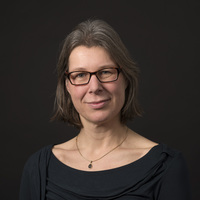"Accessible history of the formation of Islam and the first hundred years of Muslim rule in Egypt Examines a corpus of previously unknown Arabic papyrus letters Illustrated with 35 black and white plates Shaping a Muslim State... more
"Accessible history of the formation of Islam and the first hundred years of Muslim rule in Egypt Examines a corpus of previously unknown Arabic papyrus letters Illustrated with 35 black and white plates Shaping a Muslim State provides a synthetic study of the political, social, and economic processes which formed early Islamic Egypt. Looking at a corpus of previously unknown Arabic papyrus letters, dating from between AD 730 and 750, which were written to a Muslim administrator and merchant in the Fayyum oasis in Egypt, Sijpesteijn examines the reasons for the success of the early Arab conquests and the transition from the pre-Islamic Byzantine system and its Egyptian executors to an Arab/Muslim state. By examining the impact of Islam on the daily lives of those living under its rule, the volume highlights the striking newness of Islamic society while also acknowledging the influence of the ancient societies which preceded it. The book applies theoretical discussions about governance, historiography, (social) linguistics, and source criticism to understand the dynamics of early Islamic Egypt, as well as the larger process of state formation in the Islamic world."
In August 2006 a young American called Raed Jarrar discovered Arabic's potency. Detained by four guards at New York's Kennedy Airport for wearing a T-shirt with "We will not be silent" on it in Arabic, he was told that he may as well be... more
In August 2006 a young American called Raed Jarrar discovered Arabic's potency. Detained by four guards at New York's Kennedy Airport for wearing a T-shirt with "We will not be silent" on it in Arabic, he was told that he may as well be entering a bank with a T-shirt announcing "I am a robber." Recently, Arabic writings in the form of slogans on banners and bill boards carried by protestors or sprayed on walls have acquired even more loaded associations for those watching the political developments around the world - from hopes for democratic change to fears of an incipient Islamic extremist takeover. The sheer quantity of baggage that Arabic has acquired on its travels through the Western consciousness is unique. That the West's complex and intricate relationship with the language is now characterised above all by fear is a special tragedy, argues Arabist and papyrologist PetraSijpesteijn in Why Arabic?
In the vigorous defence of Arabic and the long tradition of Arabic studies, Sijpesteijn shows what can be gained by engaging with this extraordinarily fertile language and culture, and how insight and understanding can be found in the most unexpected places. Arabic's endless riches continues to surprise and reward.
In the vigorous defence of Arabic and the long tradition of Arabic studies, Sijpesteijn shows what can be gained by engaging with this extraordinarily fertile language and culture, and how insight and understanding can be found in the most unexpected places. Arabic's endless riches continues to surprise and reward.
Research Interests:
Historians have long lamented the lack of contemporary documentary sources for the Islamic middle ages and the inhibiting effect this has had on our understanding of this critically important period. Although the field is richly served by... more
Historians have long lamented the lack of contemporary documentary sources for the Islamic middle ages and the inhibiting effect this has had on our understanding of this critically important period. Although the field is richly served by surviving evidence, much of it is hard to locate, difficult to access, and philologically intractable. Presenting a mixture of historical studies and new editions of Greek, Arabic and Coptic material from the seventh to the fifteenth century C.E. from Egypt and Palestine, Documents and the History of the Early Islamic World explores the untapped wealth of documentary sources available in collections around the world and shows how this exciting material can be used for historical analysis.
Research Interests:
This book contains the first three Leiden-Aramco Lectures on Arabic Language and Culture delivered at Leiden University in 2013 and 2015. The lecture series was initiated on the occasion of the 400-year anniversary of the founding of... more
This book contains the first three Leiden-Aramco Lectures on Arabic Language
and Culture delivered at Leiden University in 2013 and 2015. The lecture
series was initiated on the occasion of the 400-year anniversary of the
founding of the chair of Arabic in 1613 at Leiden University.
The first lecture, by Petra Sijpesteijn, the current holder of the chair, took place on February 4, 2013 in the presence of representatives of the university, and the international
scholarly and diplomatic community. On February 12, 2015 James Montgomery, Sir Thomas Adams’s Professor of Arabic at Cambridge University, presented his lecture entitled “On Hedgehogs, Foxes and Magpies, and Why the World Should Read Classical Arabic Poetry.” Geert Jan van Gelder, emeritus Laudian professor at Oxford University,
presented his lecture entitled “Antidotes and Anecdotes: A Literary History of Medicine from 13th-Century Syria” on October 8, 2015.
and Culture delivered at Leiden University in 2013 and 2015. The lecture
series was initiated on the occasion of the 400-year anniversary of the
founding of the chair of Arabic in 1613 at Leiden University.
The first lecture, by Petra Sijpesteijn, the current holder of the chair, took place on February 4, 2013 in the presence of representatives of the university, and the international
scholarly and diplomatic community. On February 12, 2015 James Montgomery, Sir Thomas Adams’s Professor of Arabic at Cambridge University, presented his lecture entitled “On Hedgehogs, Foxes and Magpies, and Why the World Should Read Classical Arabic Poetry.” Geert Jan van Gelder, emeritus Laudian professor at Oxford University,
presented his lecture entitled “Antidotes and Anecdotes: A Literary History of Medicine from 13th-Century Syria” on October 8, 2015.
